Cybersecurity for Small Businesses – 5 Things Owners Need to Know
How protected is your business against digital attacks? When it comes to cybersecurity for small businesses, owners have a wide range of measures they can take to instantly enhance cybersecurity.
Perhaps in part due to our vast experience in IT and cybersecurity, the IT security veterans at Technology Advisory Group, find it easy to accept that there is nothing like absolute cybersecurity. Instead, cybersecurity is a sliding scale that depends on how far you want to take your security measures as a small business.
1. Change Your Passwords Often
It sounds elementary, but it really isn’t. It is common knowledge among cybersecurity experts that the weakest link in the chain is the human factor. Translated to the business environment, your policies and internal control systems could be the most important form of security.
As such, it’s not just about changing passwords often. You should also take time to place multiple layers of security such as multi-factor authentication (MFA) and implement micro-segmentation policies to isolate different digital assets and resources.
Such policies may be cumbersome to develop and enforce in-house. Therefore, a reliable and trusted outsourced IT partner is invaluable. Here in Rhode Island, our team at TAG helps clients uphold strict security practices to strengthen policy.
2. Invest in Robust Network Firewalls
Like a high fence around your property, firewalls make your business less attractive to all but the most determined malicious agents. Firewalls are highly effective at blocking bots and automated malware that roam around sniffing for weak points. This way, firewalls alone can keep away over 90% of potential threats.
Also, managed firewalls block access to potentially dangerous sites and activity including pornographic sites, phishing websites, unauthorized file transfer, and more. By scanning all unencrypted data in and out of your systems, a network-mounted firewall plays sentinel at the point where your systems are most vulnerable – online.
3. Invest in Continuous Maintenance and Upgrades
Outdated and legacy systems remain a large security risk for many organizations, including governments and healthcare. That’s because systems naturally become more vulnerable with age as weaknesses are studied and exploited.
And yet, maintaining business IT infrastructure in top condition in the face of changing IT needs may be one of the biggest IT expense in terms of money and effort. Upgrading hardware, patching software, managing access privileges, and monitoring resources involve a significant investment.
When done in-house, maintenance of critical business IT systems remains almost impossible for small businesses. Unlike big organizations, they may lack the resources to run a dedicated in-house IT department.
That’s where outsourcing your IT and security needs comes in. Working with a dedicated team such as The Technology Advisory Group in Rhode Island, New England helps you to maintain your IT systems affordably and reliably.
4. Manage External Devices
Businesses have been implementing Bring Your Own Device policies to enable remote working. But, this practice also poses inherent security risks. Having unregistered and unmonitored devices plug into your network creates new vulnerabilities, both human and technical.
If you have such a policy, talk to your security partners about securing and monitoring all external IT devices connected to your system. You also need to have robust micro-segmentation procedures in place to cordon off sensitive data and systems to all but authorized personnel.
5. Have a Disaster Recovery Plan for Your IT Assets
Here’s a common story: your business is hacked and malicious ransomware is installed into your systems. You can’t access your data until you pay $50,000 in Bitcoin, or else.
Unfortunately, this is the kind of attack that happens more often than you think and likely goes unreported. You risk losing your entire network of data and IT assets unless you have an independent, updated disaster recovery plan in place. It’s best to talk things over with your preferred IT services provider for more about backup and disaster recovery options.
There’s More You Can Do to Lift Your Organization’s Security Standards
The cybersecurity spectrum is really a cause-and-effect kind of thing. The more measures you put in place, the lower the risk of running into a disastrous threat. It’s a question of how much your data and systems are worth to your business.
If you would like to learn more about what you can do to help improve the security of your business’ IT assets, talk to us. The Technology Advisory Group has been operating in Rhode Island and New England since 1996. Our team of experts is always happy to serve up proactive, innovative, and adaptive IT solutions for small businesses.
Schedule Your Cloud Services Consultation
Ready to make a move to the cloud? TAG is ready to help with any or all cloud services from a private cloud, public cloud, or Microsoft 365 services.
